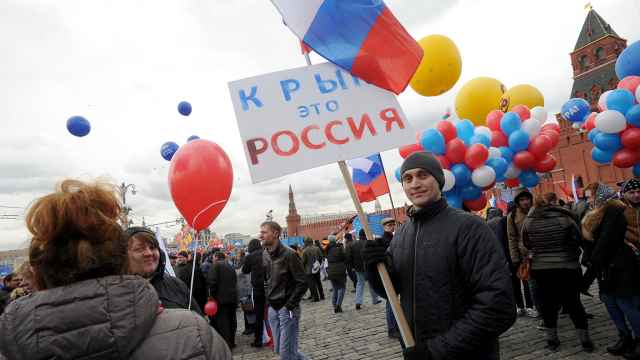That was the finding of an experiment conducted by Reader's Digest magazine that saw its reporters drop 192 wallets in 16 cities around the world to test people's honesty .
Each wallet contained a cell phone number, a family photo, coupons, business cards and the equivalent of $50 in cash. The reporters left wallets in parks, on sidewalks and near shopping centers, and then watched to see what would happen.
The results, published in the magazine's October issue, found that Moscow ranked as "Fairly Honest," with seven out of 12 wallets returned.
In one example, Eduard Anitpin, an officer with the Emergency Situations Ministry, found a lost wallet near the Moscow Zoo and handed it over to a security guard.
"I am an officer and I am bound by an officer's ethical code," he said. "My parents raised me as an honest and decent man."
Later at the zoo, a young woman named Yekaterina returned a wallet to its owner. When the reporter asked her and her friend Dmitry why they had bothered to give it back, Dmitry replied: "I am convinced that people should help one another, and if I can make someone a little happier, I will."
Moscow shared the same ranking as Amsterdam (also seven out of 12 wallets returned), as well as four other cities: Berlin and Ljubljana (six wallets) and London and Warsaw (five wallets).
But Moscow was scored as significantly more honest than Bucharest, Rio de Janeiro and Zurich (four wallets returned), Prague (three wallets), Madrid (two wallets) and Lisbon (one wallet), which were were all ranked in the bottom "Shame on You" category.
Lisbon, in fact, turned out not to have a single honest resident who found a wallet. To the surprise of Reader's Digest reporters, the one wallet that was returned in Portugal's capital was handed over by an elderly Dutch couple visiting as tourists.
The most honest city was Helsinki, with 11 out of 12 wallets returned, followed by Mumbai (nine wallets returned), Budapest and New York (eight wallets).
Moscow's relatively high ranking may come as a surprise to some. All forms of corruption, including theft, embezzlement and bribery, have reached epidemic levels in Russia, prompting President Vladimir Putin to warn that it was a major threat to national security.
Interesting, the U.S. State Department has warned Americans about falling victim in Russia to a ploy somewhat similar to the experiment organized by Reader's Digest.
"A common street scam in Russia is the 'turkey drop' in which an individual 'accidentally' drops money on the ground in front of an intended victim, while an accomplice either waits for the money to be picked up, or picks up the money him/herself and offers to split it with the pedestrian," the State Department said in a report published Thursday on its website. "The individual who dropped the currency then returns, aggressively accusing both of stealing the money. This confrontation generally results in the theft of the pedestrian's money.
"Avoidance is the best defense," the report said. "Do not get trapped into picking up the money, and walk quickly away from the scene."
The Reader's Digest experiment concluded that age, gender and wealth were no predictor of whether a person was honest or dishonest. "There are honest and dishonest people everywhere," it wrote in an article.
Of the 192 wallets dropped, 90 were returned, or 47 percent.
"It is truly inspiring to see that there are so many honest people in the world," Raimo Moysa, editor-in-chief of Reader's Digest International Magazines, said in a statement. "And most of all, that honesty is valued among young and old, men and women, poor and rich in very different cultures."
A Message from The Moscow Times:
Dear readers,
We are facing unprecedented challenges. Russia's Prosecutor General's Office has designated The Moscow Times as an "undesirable" organization, criminalizing our work and putting our staff at risk of prosecution. This follows our earlier unjust labeling as a "foreign agent."
These actions are direct attempts to silence independent journalism in Russia. The authorities claim our work "discredits the decisions of the Russian leadership." We see things differently: we strive to provide accurate, unbiased reporting on Russia.
We, the journalists of The Moscow Times, refuse to be silenced. But to continue our work, we need your help.
Your support, no matter how small, makes a world of difference. If you can, please support us monthly starting from just $2. It's quick to set up, and every contribution makes a significant impact.
By supporting The Moscow Times, you're defending open, independent journalism in the face of repression. Thank you for standing with us.
Remind me later.






